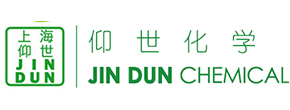Facing and responding to changes in the complex international energy market situation
2023/6/21
This follows a surprise OPEC+ production cut of 1.6 million barrels per day in April this year, by which WTI crude opened higher on Monday, rising 3.2% in early trading to $74.1 per barrel.
Saudi Arabia's voluntary production cuts to push OPEC+ to reach a new production cut agreement, while reflecting Saudi Arabia's influence on the OPEC+ organization and its own stronger capacity flexibility, to a certain extent also shows the growing divergence of interests within the OPEC+ organization.
In fact, compared to the success of Saudi Arabia's lobbying for production cuts for other member countries in April, this cut was made in exchange for concessions made by Saudi Arabia alone, reflecting member countries' skepticism that production cuts can stabilize prices and increase revenues. Because the OPEC+ production cut in April did not achieve the expected effect, especially since May, oil prices fell by about 11% in a single month, not only retracting the gains brought by the April production cut agreement, but also making oil prices lower than the pre-cut level.
Obviously, the April production cut failed to bring additional benefits to OPEC+ members, which will naturally reduce the support of major members for the new production cut agreement. After all, the global economy is currently facing great uncertainty, and production cuts will not necessarily stabilize prices, but will actually reduce the revenues of oil-producing countries. Moreover, the OPEC+ second largest oil producer has been divided on production cuts since this year.
It can be seen that, in the global economy is facing outstanding uncertainty pressure, and OPEC + internal interests of divergent highlights and other background, OPEC + production cut agreement can achieve results, is not optimistic.
The voluntary production cuts by Saudi Arabia in exchange for other OPEC+ members to end this year's production cut agreement extended to the end of 2014, or from the Saudi Arabia to open a grand economic plan, that is, Saudi Arabia is spending $ 500 billion to build a "linear city".
The city, built at great expense in the desert, makes it necessary for Saudi Arabia to stabilize international oil prices through OPEC+ in order to raise $500 billion in construction funds. Some analysts believe that Saudi Arabia needs to guarantee that the price of oil per barrel remains near $80 in order to raise enough money for the new city.
And this will further make the West believe that OPEC has a stronger motive to manipulate international oil prices. After all, since the geopolitical conflict, the West has been accusing OPEC of manipulating oil prices to undermine the global economy by raising energy costs and causing the West to experience high inflationary pressures.
This can trigger an atypical, non-fundamental risk of volatility in international energy markets. And this atypical, non-fundamental volatility risk stems mainly from the risk of functional differentiation in OPEC+, not just OPEC+'s alleged manipulation of international oil prices, as there is currently a clear divergence in the internal interests of OPEC+ members, and without excluding that divergence from growing in the future, which would easily turn OPEC from an international oil price equalizer into a market volatility booster.
After all, although OPEC is currently a cartel-style international energy supply organization, its role in the international energy market is clearly peak-shaving, and once the marginal cost of reaching a unanimous agreement among the organization's members due to widening differences in interests is too high, the negative impact on the international energy market will be very obvious.
In view of such systemic changes in international financial markets, China, a net energy importer, needs to actively prepare for risk hedging of energy imports in order to reduce trade losses and gains from non-fundamental fluctuations in international energy markets.
This requires, on the one hand, doing a good job of expanding the scale of local currency trade settlement with Saudi Arabia and other countries to cushion the exchange loss of bilateral trade; on the other hand, China's buyer advantage in international energy imports can be leveraged to improve the cross-border risk management and hedging scenarios of China's energy futures products, i.e., by enriching and improving the trading varieties of financial derivatives such as crude oil futures options and refined oil futures options mainly in RMB to improve China's The bargaining and negotiating power of China in the international energy market.
When time moves, the situation changes; when the situation changes, the situation changes; when the situation changes, the law is different. The current situation in the international energy market is facing complex changes, and the role of OPEC+ in the international financial market is facing more uncertainties.
JIN DUN CHEMICAL has built a special (meth) acrylic monomer manufacturing base in ZHEJIANG province. This makes sure the stable supply of HEMA, HPMA, HEA, HPA, GMA with high level quality. Our special acrylate monomers are widely used for thermosetting acrylic resins, crosslinkable emulsion polymers, acrylate anaerobic adhesive, two-component acrylate adhesive, solvent acrylate adhesive, emulsion acrylate adhesive, paper finishing agent and painting acrylic resins in adhesive.We have also developed the new and special (meth) acrylic monomers and derivatives. Such as the fluorinated acrylate monomers, It can be widely used in coating leveling agent, paints, inks, photosensitive resins, optical materials, fiber treatment, modifier for plastic or rubber field. We are aiming to be the top supplier in the field of special acrylate monomers, to share our rich experience with better quality products and professional service.

